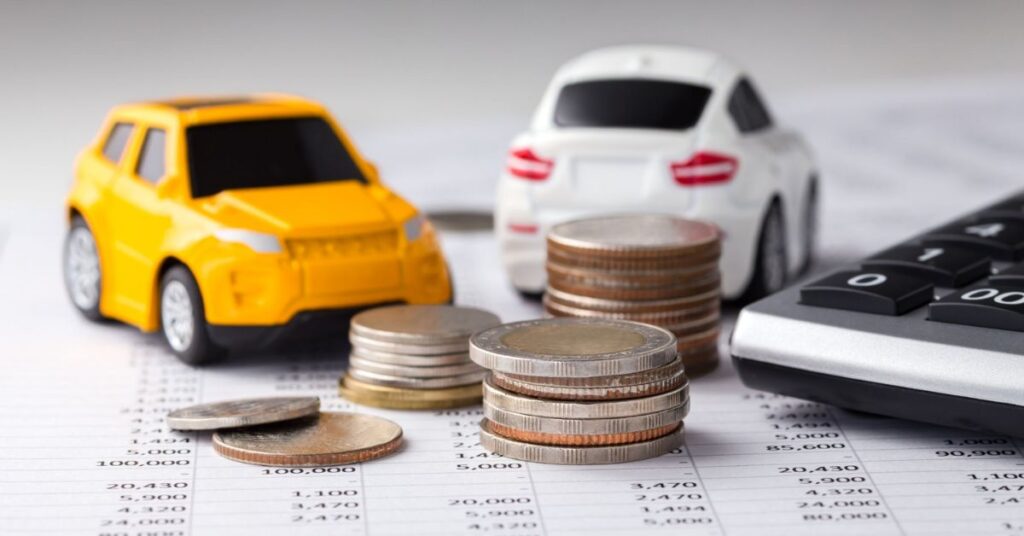Ever found yourself eyeing a shiny new ride while still paying off your current set of wheels? You’re not alone. Many American drivers wonder, “Can u trade in a car that’s on finance?” The short answer is yes, but there’s more to it than just swapping keys at the dealership. Let’s dive into the nitty-gritty of trading in a financed car. can you trade in a car that’s on finance.
How Do I Trade In My Car That Is Still Under Finance?
Trading in a financed car isn’t rocket science, but it does require some know-how. The process can vary depending on whether you financed through a dealership or a third-party lender. Let’s break it down:
Car Financed Through a Dealership
were given your loan from a bank or credit score union? No worries, you could nevertheless trade in your automobile. It simply may take some extra steps:
- Touch your lender: Get the payoff quantity in your mortgage.
- Existing relationship: They might be more willing to work with you on a new deal.
- Simplified paperwork: Less back-and-forth between different parties.
But don’t pop the champagne just yet. Dealership financing often comes with higher interest rates, which could mean you owe more on the car than it’s worth. This situation, known as negative equity, can complicate things. can you trade in a car that’s on finance.
Car Financed Through a Lender
Got your loan from a bank or credit union? No worries, you can still trade in your car. It just might take a few extra steps:
- Contact your lender: Get the payoff amount for your loan.
- Gather paperwork: You’ll need your loan details and car title info.
- Shop around: Don’t feel tied to the dealership where you bought the car.
Remember, the dealer will need to pay off your existing loan as part of the trade-in process. This could affect how much they’re willing to offer you. can you trade in a car that’s on finance.
How Soon Can You Trade In a Financed Car?
Itching to trade in your car ASAP? Not so fast, lead foot. Timing is crucial when trading in a financed car. Here’s what you need to know:
- Equity is key: Ideally, you want positive equity (your car’s worth more than you owe).
- Depreciation curve: Cars lose value fastest in the first few years.
- Loan terms: Longer loans mean it takes longer to build equity.
Here’s a quick breakdown of when you might consider trading in:
| Time Since Purchase | Pros | Cons |
|---|---|---|
| 0-1 year | New car smell still fresh | Likely negative equity |
| 2-3 years | New car smell is still fresh | May still owe more than car’s worth |
| 4+ years | Likely positive equity | May still owe more than the car’s worth |
| Read More About: How Do I Trade In My Car That Is Still Under Finance? |
Quick Overview of the Car Trade-In Process with a Loan
Ready to take the plunge? Here is a hen’s-eye view of the process:
- Check your car’s value: Use tools like Kelley Blue Book or NADA Guides.
- Get your payoff amount: Call your lender for the exact figure.
- Do the math: Subtract the payoff from your car’s value to find your equity.
- Shop around: Get quotes from multiple dealerships.
- Negotiate: Remember, the trade-in value is just one part of the deal.
- Close the deal: The dealer will pay off your old loan and set up your new one.
Sounds simple, right? But as with any big financial decision, the devil’s in the details.
recommendations while buying and selling your vehicle below Finance
Need to pop out on top? keep these pointers in your lower back pocket:
Be Upfront About Your Situation
Honesty isn’t just the best policy; it’s your best strategy. Here’s why:
- Builds trust: Dealers are more likely to work with you if you’re transparent.
- Saves time: No surprises mean a smoother process.
- Better deals: Some dealers specialize in helping folks with financed trade-ins.
Understand the Risks
Trading in a financed car isn’t all sunshine and rainbows. Be aware of these potential pitfalls:
- Negative equity: If you owe more than your car’s worth, you might roll that debt into a new loan.
- Higher interest rates: A new loan could mean higher monthly payments.
- Longer loan terms: You might be extending your debt.
Talk to Your Lender
Don’t leave your lender out of the loop. They can be a valuable resource:
- Get accurate payoff info: Crucial for negotiating your trade-in.
- Explore options: They might offer refinancing or other alternatives.
- Understand penalties: Some loans have early payoff fees.
“Knowledge is power. The more you know about your current loan and car value, the better equipped you’ll be to negotiate a fair deal.” – Sarah Johnson, Consumer Auto Advocate
Maximizing Your Trade-In Value for a Financed Car
Want to squeeze every penny out of your trade-in? Try these tricks:
- Spruce it up: A clean, well-maintained car commands a higher price.
- Fix minor issues: That dent might cost you more in lost value than the repair would.
- Gather records: Proof of regular maintenance can boost your car’s value.
- Time it right: End of the month or year when dealers are trying to hit sales targets.
Alternatives to Trading In Your Financed Car
Not sold on trading in? You’ve got options:
- Sell privately: You might get more money, but it takes more effort.
- Refinance: Could lower your payments without changing cars.
Lease takeover: Assume someone else’s lease for a short-term solution.
FAQs
Ans: Yes, but be prepared to roll that debt into your new loan or pay it off.
Ans: The trade-in itself won’t, but applying for a new loan will result in a hard inquiry.
Ans: Not necessarily. If you have positive equity, it often doesn’t make a difference.
Ans: Absolutely! Just be aware of how it might affect your monthly payments.
Ans: They’ll pay it off as part of the trade-in process, either from the new loan or your down payment.





